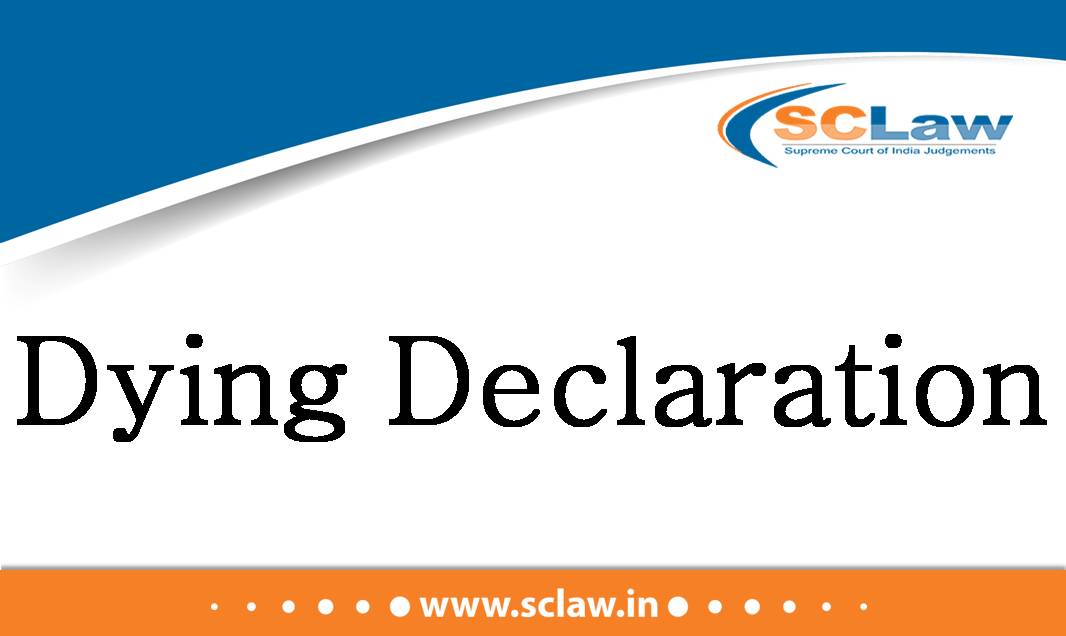Arbitration and Conciliation Act, 1996 – Sections 34 and 37 – Any award of an arbitrator or a tribunal that seeks to overreach a binding judicial decision, does conflict with the fundamental public policy and cannot, therefore, sustain – A judicial decision of a superior court, which is binding on an inferior court, has to be accepted with grace by the inferior court notwithstanding that the decision of the superior court may not be palatable to the inferior court – This principle, ex proprio vigore, would be applicable to an arbitrator and a multi-member arbitral tribunal as well
SUPREME COURT OF INDIA DIVISION BENCH M/S UNIBROS — Appellant Vs. ALL INDIA RADIO — Respondent ( Before : S. Ravindra Bhat and Dipankar Datta, JJ. ) Civil Appeal No.…
Arbitration and Conciliation Act, 1996 – Section 12 – Arbitral award – Ground for challenge – Fee increase can be resorted to only with the agreement of parties; in the event of disagreement by one party, the tribunal has to continue with the previous arrangement, or decline to act as arbitrator – Yet, whether the breach of that rule, as in the present case, by insisting that the increase of fee should prevail does not in this court’s opinion, amount to a per se ineligibility, reaching to the level of voiding the tribunal’s appointment, and terminating its mandate
SUPREME COURT OF INDIA DIVISION BENCH CHENNAI METRO RAIL LIMITED ADMINISTRATIVE BUILDING — Appellant Vs. M/S TRANSTONNELSTROY AFCONS (JV) AND ANOTHER — Respondent ( Before : S. Ravindra Bhat and…
Dying declaration of the deceased would clearly indicate that deceased was mentally traumatized and she was unable to tolerate the torture and harassment meted out by the accused person on account of which she committed suicide – It is this taunting or mental torture which she could not withstand and forced her to commit suicide by self-immolation – Accused persons are liable to be convicted for the offence punishable under Section 306 IPC though charge was not framed – Appellants are acquitted for the offences punishable under Section 304B IPC and Section 3 and 4 of Dowry Prohibition Act and convicted for the offence punishable under Section 306 and Section 498A read with Section 34 IPC and sentenced to imprisonment for the period already undergone – Appeal allowed in part.
SUPREME COURT OF INDIA DIVISION BENCH PARANAGOUDA AND ANOTHER — Appellant Vs. THE STATE OF KARNATAKA AND ANOTHER — Respondent ( Before : S. Ravindra Bhat and Aravind Kumar, JJ.…
Land Acquisition Act, 1959 – Section 52(2) – Challenge to acquisition – Failure to serve notice under Section 52(2) of the Land Acquisition Act, 1959 – Jurisdiction of Civil Court – Maintainability – Difference of opinions and the distinguishing judgments – Registry is directed to place the matter before Hon’ble the Chief Justice of India for referring the matter to a larger Bench.
SUPREME COURT OF INDIA DIVISION BENCH URBAN IMPROVEMENT TRUST, BIKANER — Appellant Vs. GORDHAN DASS (D) THROUGH LRS. AND OTHERS — Respondent ( Before : Manoj Misra and Hrishikesh Roy,…
Penal Code, 1860 (IPC) – Sections 363, 366-A, 376(A), 376(2)(i), 376(2)(j), 376(2)(k), 376(2)(m), 302 and 201 – Protection of Children from Sexual Offences Act 2012 – Section 6 – Death sentence – Kidnapping, Rape and Murder of 3 months old girl child – Hurried Trial – Prosecution is based on circumstantial evidence in which the prosecution has to prove each link in the chain of circumstantial evidence and the important chains in the link are DNA report, FSL report and Viscera report – Trial has been conducted on day-to-day basis wherein the accused, who was in jail and defended by a counsel from legal aid, was compelled by the Trial Court to produce defence witness of his own in one day – – There was no opportunity, in the real sense, to the appellant to cross-examine the experts – Death sentence sentence set aside – matter is remitted back to the trial court for de novo trial
SUPREME COURT OF INDIA FULL BENCH NAVEEN @ AJAY — Appellant Vs. THE STATE OF MADHYA PRADESH — Respondent ( Before : B.R. Gavai, Pamidighantam Sri Narasimha and Prashant Kumar…
Penal Code, 1860 (IPC) – Section 302 – Murder of newborn child – Acquittal – None of the witnesses has seen the convict-appellant throwing the deceased child into the dabri; as hitherto observed, no conclusive proof, of any nature, of relationship had been put forth by the prosecution; no evidence has been led to cast doubt upon the version of the convict – Statement of the doctor is silent on the death of the deceased having occurred prior to or after birth, although in examination in chief, the doctor has deposed that the death of the deceased child was homicidal in nature; however, in the cross-examination, it is admitted that such fact does not form part of the record, thereby calling into question the conclusion itself as it is a vital piece of information that has been omitted – Conviction and sentence set-aside – Appeal allowed.
SUPREME COURT OF INDIA DIVISION BENCH INDRAKUNWAR — Appellant Vs. THE STATE OF CHHATTISGARH — Respondent ( Before : Sanjay Karol and Abhay S. Oka, JJ. ) Criminal Appeal No.1730…
Limitation Act, 1963 – Section 5 – West Bengal Premises Tenancy Act, 1997 – Sections 7(1) and 7(2) – Non-payment of arrears of rent – Extension of time – While the Limitation Act may be generally applicable to the proceedings under the Tenancy Act, the restricted proviso under Section 7 of the said Act, providing a time period beyond which no extension can be granted, has to be applicable.
SUPREME COURT OF INDIA DIVISION BENCH DEBASISH PAUL AND ANOTHER — Appellant Vs. AMAL BORAL — Respondent ( Before : Sanjay Kishan Kaul and Sudhanshu Dhulia, JJ. ) Civil Appeal…
Penal Code, 1860 (IPC) – Section 302 – Murder of female colleague – Dying declarations – It is an established principle that a dying declaration, if it is free of tutoring, prompting, etc. can form the sole basis of conviction – For instance, nothing on record indicates- the ownership of a vehicle by the convict-appellant; any disagreement or animosity between the convict-appellant and the deceased, that is of such an extreme nature as to set her on fire; any connection between the convict-appellant and the inflammable substance used to kill the victim such as the record of purchase or statement of any person to show such substance to be in possession of the convict-appellant, etc – Conviction and sentence set aside – Acquittal.
SUPREME COURT OF INDIA DIVISION BENCH ABHISHEK SHARMA — Appellant Vs. STATE (GOVT. OF NCT OF DELHI) — Respondent ( Before : Abhay S. Oka and Sanjay Karol, JJ. )…
Insolvency and Bankruptcy Code, 2016 – Section 7 – Securitisation and Reconstruction of Financial Assets and Enforcement of Security Interest Act, 2002 – Section 13(2) – In absence of averments or pleading, after initiation of insolvency proceeding, any promise made to pay the debt cannot be treated to have cured the fault of limitation in a preexisting action – In the event a financial creditor wants to pursue a recovery certificate as a deemed decree, he would get twelve years’ time.
SUPREME COURT OF INDIA DIVISION BENCH TOTTEMPUDI SALALITH — Appellant Vs. STATE BANK OF INDIA AND OTHERS — Respondent ( Before : Aniruddha Bose and Vikram Nath, JJ. ) Civil…
Medical Negligence – The standard to be applied for judging, whether the person charged has been negligent or not, would be that of an ordinary competent person exercising ordinary skill in that profession. It is not possible for every professional to possess the highest level of expertise or skills in that branch which he practices. A highly skilled professional may be possessed of better qualities, but that cannot be made the basis or the yardstick for judging the performance of the professional proceeded against on indictment of negligence.
SUPREME COURT OF INDIA DIVISION BENCH MRS. KALYANI RAJAN — Appellant Vs. INDRAPRASTHA APOLLO HOSPITAL AND OTHERS — Respondent ( Before : Prashant Kumar Mishra and A.S. Bopanna, JJ. )…














